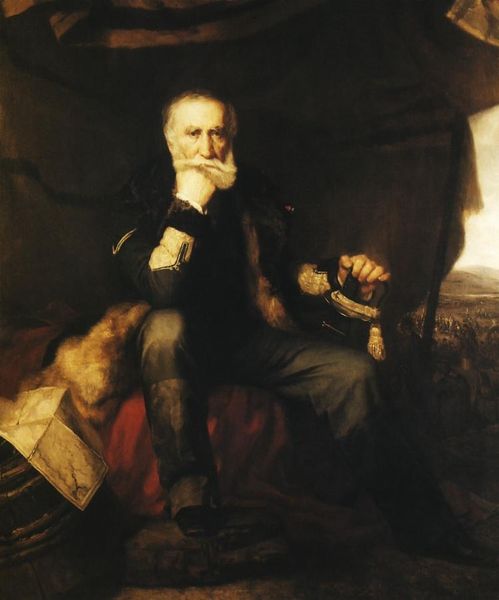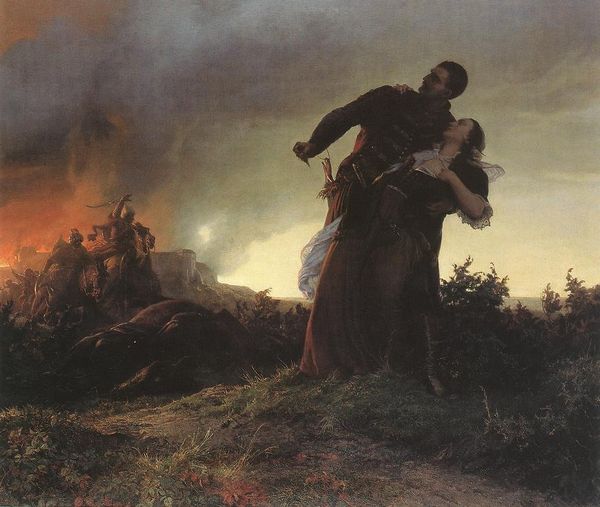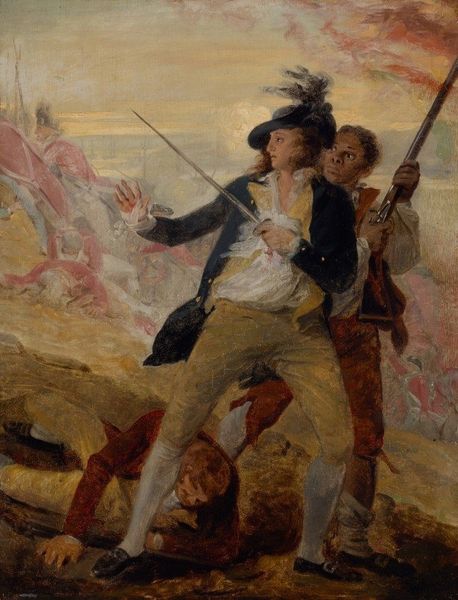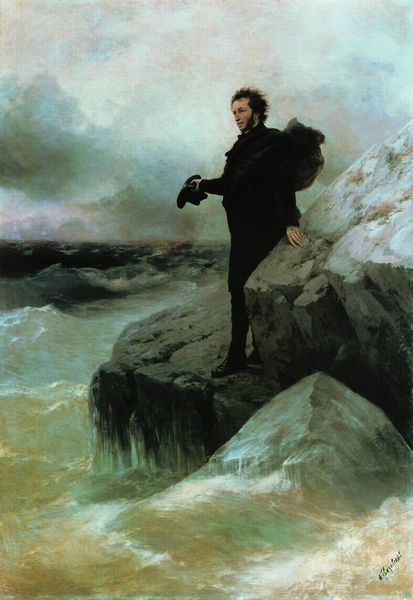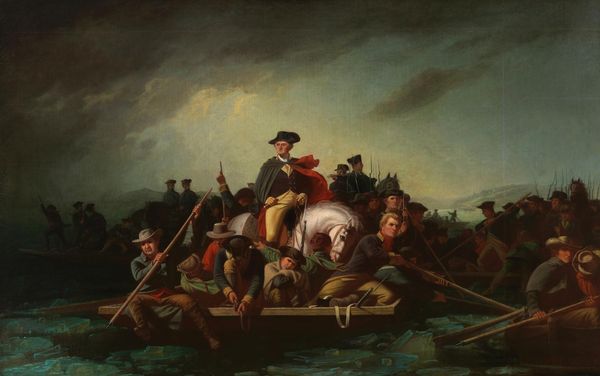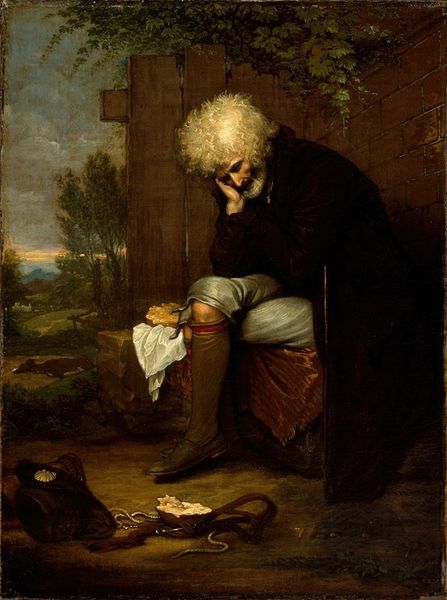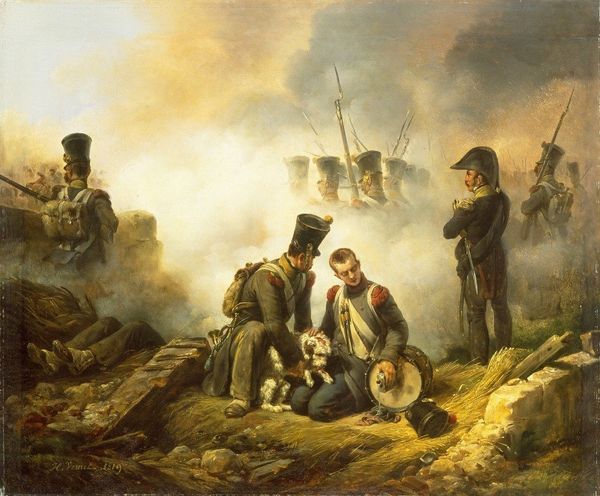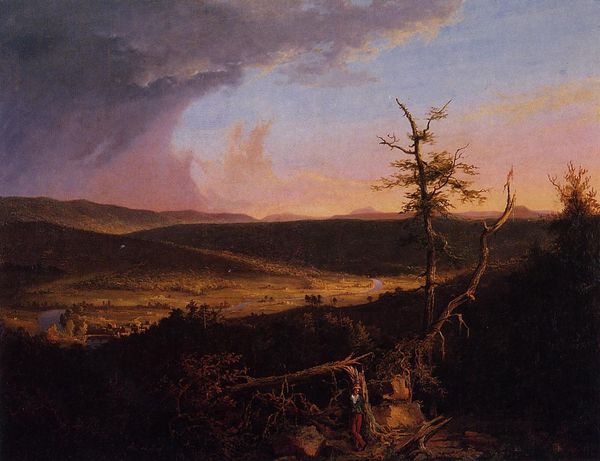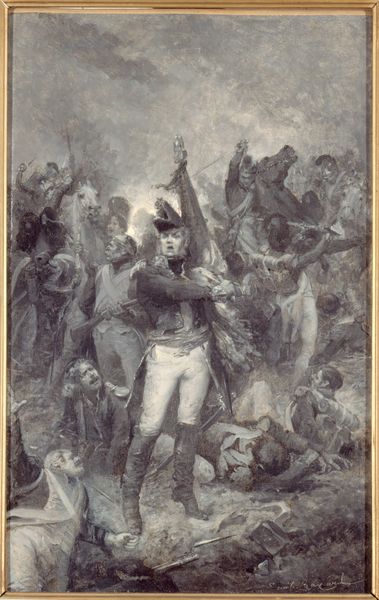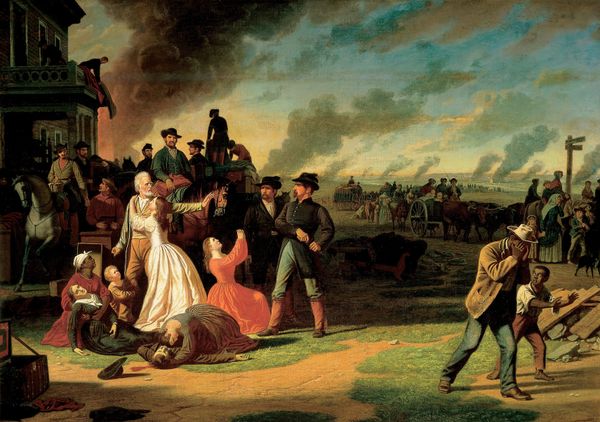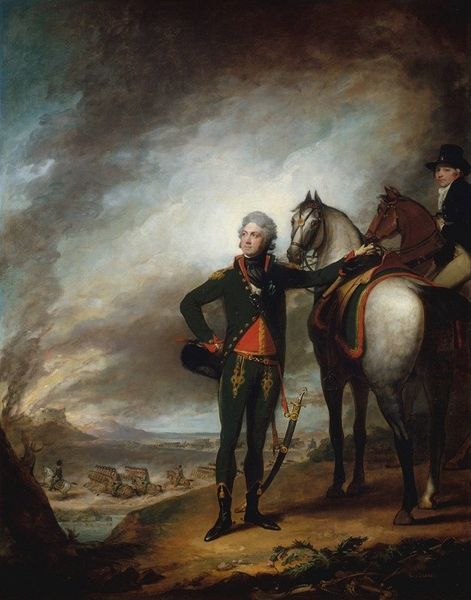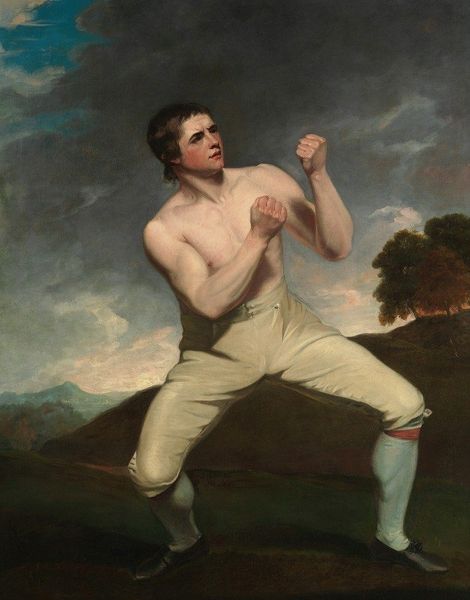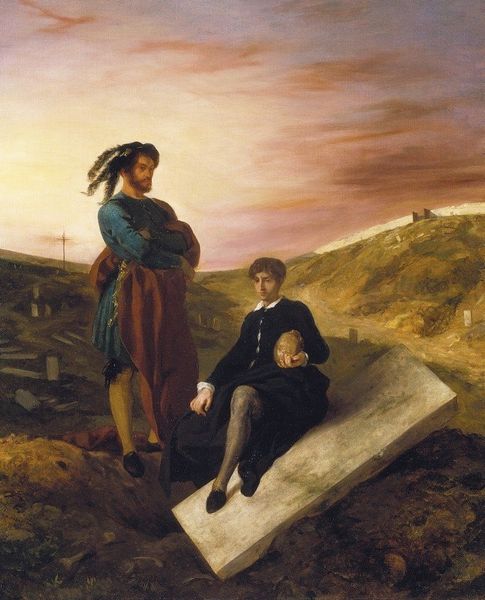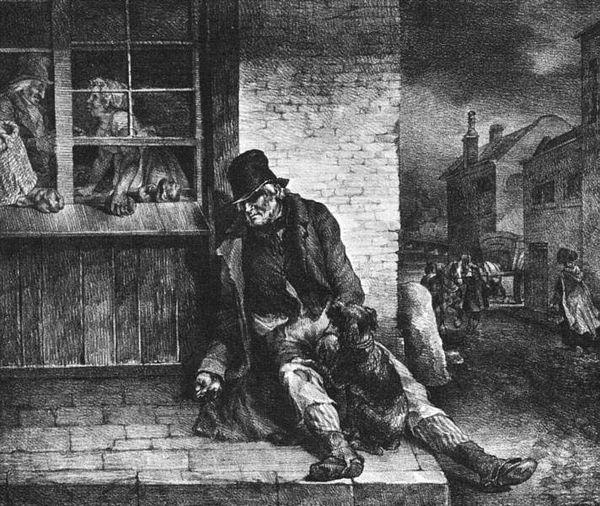
painting, oil-paint
portrait
painting
oil-paint
landscape
figuration
romanticism
history-painting
Copyright: Public domain
Curator: Horace Vernet presents us with "The Last Grenadier of Waterloo." Notice the sweeping landscape—an embodiment of Romanticism in the way it harnesses nature’s dramatic power. Editor: Whoa, heavy stuff! My first thought: total defeat. I mean, look at him – he’s the definition of forlorn hope, like a tragic hero from a lost epic. The dark storm clouds brewing behind him definitely add to the mood. Curator: Precisely. Observe how Vernet uses color. The somber earth tones emphasize desolation. The blood stains disrupt the harmony, forcing the viewer to confront the brutal reality. It underscores a profound rupture. Editor: A rupture, yes, but there’s also this incredible sunset – or sunrise, maybe? – battling through the gloom. Is it hope? Or just the cruel irony of a pretty sky on a day like this? He seems crushed under that paradox! Even his wounded foot and discarded weapon enhance this sense of being at the end of everything. Curator: We might examine the structural dichotomy Vernet establishes. The grenadier is positioned centrally, but his slumped posture contrasts with the vertical thrust of the distant cross. Consider it: earthly defeat juxtaposed with possible spiritual transcendence. The gaze is everything, inward but also defiant, almost daring fate to deliver a further blow. Editor: You know, that gaze gets me. I see not just defeat but raw defiance there, like he’s saying, "I’m still here. I survived this nightmare. And even in ruins, I’m a force to be reckoned with.” Maybe the romanticism is a thin layer to emphasize even further his stubborn humanity in face of a historical disaster. Curator: It’s that very tension, the interplay of elements that lends this painting its enduring power, isn’t it? Vernet captures a specific moment of defeat and turns it into a rumination on resilience and the human condition. Editor: I see it too now! This piece doesn't depict the end so much as an echo, resonating through history from one person's defiant silence.
Comments
No comments
Be the first to comment and join the conversation on the ultimate creative platform.
